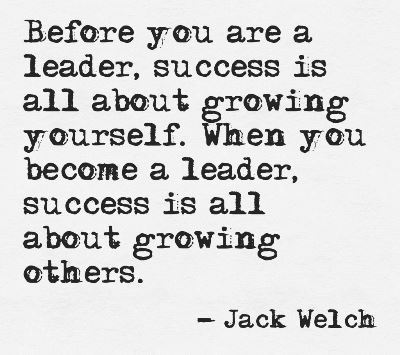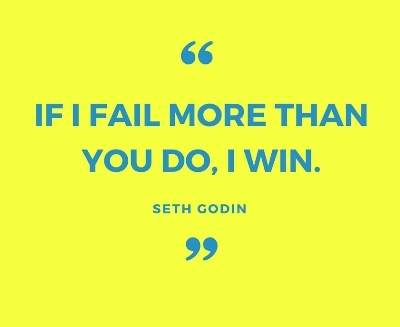Jeremie Averous's Blog, page 58
May 31, 2018
How To Properly Regulate Facebook
Following from our previous post ‘How Facebook Model is Addiction and Growth – and Why It Can’t Change‘, people talk more and more about regulating Facebook. But, as Frederic Filloux argues in his post ‘Facebook could actually benefit from a little regulation‘, that may come exactly at the right time for Facebook as it currently has a dominating position – by making harder for competitors to be compliant. This is further developed in Techcrunch ‘Regulation could actually protect Facebook, not punish it‘
 “Why the hell would Facebook’s lider maximo welcome the intrusion of a regulator? Two reasons: it could help his business in the long run, and by the time any regulation takes effect, Facebook will have consolidated even further its already immense power.”
“Why the hell would Facebook’s lider maximo welcome the intrusion of a regulator? Two reasons: it could help his business in the long run, and by the time any regulation takes effect, Facebook will have consolidated even further its already immense power.”
All agree that Facebook have very little to fear from the regulator, except if some sort of anti-trust approach would be used that would force the conglomerate to split in various entities. That was actually what allowed capitalism to overcome the large trusts and dominating capitalist companies at the beginning of the 20th century. Is forceful split of the large internet companies the solution?

May 29, 2018
How Facebook Model is Addiction and Growth – and Why It Can’t Change
Famous blogger Om Malik‘s post ‘The #1 reason Facebook won’t ever change‘ is worth reading. It came at the beginning of Facebook’s crisis about the leakage of personal data. His point is that Facebook model is based on addiction, data gathering and sharing and it won’t change.
 Om Malik describes the DNA of Facebook as “a social platform addicted to growth and engagement. At its very core, every policy, every decision, every strategy is based on growth (at any cost) and engagement (at any cost). More growth and more engagement means more data — which means the company can make more advertising dollars, which gives it a nosebleed valuation on the stock market, which in turn allows it to remain competitive and stay ahead of its rivals.”
Om Malik describes the DNA of Facebook as “a social platform addicted to growth and engagement. At its very core, every policy, every decision, every strategy is based on growth (at any cost) and engagement (at any cost). More growth and more engagement means more data — which means the company can make more advertising dollars, which gives it a nosebleed valuation on the stock market, which in turn allows it to remain competitive and stay ahead of its rivals.”
“Facebook is about making money by keeping us addicted to Facebook. It always has been — and that’s why all of our angst and headlines are not going to change a damn thing.” So, in spite of all the discussions and show times, Facebook model is not going to change. It will try to increase its addiction and lure all the users that still resist to it.

May 26, 2018
How to Tackle the Risk of Alternative Augmented Realities
Following up from our post ‘How Videos can now be Faked Easily And What It Means‘ and The Atlantic paper ‘The Era of Fake Video Begins‘ (or the reality ends), fake videos increasingly point towards an alternative augmented reality that will increasingly surround us – and we won’t quite need special glasses to be immersed in it.
 The Atlantic paints a gloomy picture: “If the hype around VR eventually pans out, then, like the personal computer or social media, it will grow into a massive industry, intent on addicting consumers for the sake of its own profit, and possibly dominated by just one or two exceptionally powerful companies.”
The Atlantic paints a gloomy picture: “If the hype around VR eventually pans out, then, like the personal computer or social media, it will grow into a massive industry, intent on addicting consumers for the sake of its own profit, and possibly dominated by just one or two exceptionally powerful companies.”
“Designers of VR have described some consumers as having such strong emotional responses to a terrifying experience that they rip off those chunky goggles to escape. Studies have already shown how VR can be used to influence the behavior of users after they return to the physical world, making them either more or less inclined to altruistic behaviors.” Still, it is useful to understand this might be a possible future and respond to it.
Will be prefer to be immersed in a not so rosy reality or flee to a virtual reality that might be more perfect but make us lose sense of what’s real?

May 24, 2018
How Videos can now be Faked Easily And What It Means
There is a deep change coming upon us: the ability to manipulate videos is now so advanced that it is easy to do and videos can’t be taken any more as proofs. This issue is discussed at length in The Atlantic paper ‘The Era of Fake Video Begins‘.
 I believe the impact of this technological change is quite underestimated, in particular because it will be democratized in the next months. Until now it was easy to fake or manipulate a sound track, but much harder to do so with video; in addition videos are intrinsically more believable because “we see it with our own eyes”. New technology allows easily to replace a face in a video, or else manipulate them in an undetectable manner. And this will be a huge problem because we have come to rely on video as a means of proof (for example, equipping police forces with video cameras). As the paper says, “We’ll shortly live in a world where our eyes routinely deceive us. Put differently, we’re not so far from the collapse of reality.”
I believe the impact of this technological change is quite underestimated, in particular because it will be democratized in the next months. Until now it was easy to fake or manipulate a sound track, but much harder to do so with video; in addition videos are intrinsically more believable because “we see it with our own eyes”. New technology allows easily to replace a face in a video, or else manipulate them in an undetectable manner. And this will be a huge problem because we have come to rely on video as a means of proof (for example, equipping police forces with video cameras). As the paper says, “We’ll shortly live in a world where our eyes routinely deceive us. Put differently, we’re not so far from the collapse of reality.”
Some call these manipulated videos ‘deepfakes’ and it is quite a good image. We won”t be able to believe any more what we see. Video certification programs will have to be developed to give us trust. Regulation will have to kick-in. A new world is coming.

May 22, 2018
How the End of the Dilberts is coming
This is a striking expression from the head of the Bank of England, as reported by Bloomberg. He even mentions “the Massacre of the Dilberts“, meaning that many bureaucratic intermediate positions will be uprooted by the technology revolution.
 Is bureaucracy going to disappear in the Collaborative Age? Probably not quite. Although it was a form of organisation made to manage large quantities of information at a time where there were no computers, bureaucracy will probably still exist even if many basic tasks will be carried out by computers and AI. Nevertheless, there is a question mark as to the many people currently employed by bureaucraties in intermediate jobs that may lose their job with the technology revolution. It may be that the issue would be even more acute in banks and in the finance industry, traditionally large bureaucraties.
Is bureaucracy going to disappear in the Collaborative Age? Probably not quite. Although it was a form of organisation made to manage large quantities of information at a time where there were no computers, bureaucracy will probably still exist even if many basic tasks will be carried out by computers and AI. Nevertheless, there is a question mark as to the many people currently employed by bureaucraties in intermediate jobs that may lose their job with the technology revolution. It may be that the issue would be even more acute in banks and in the finance industry, traditionally large bureaucraties.
The traditional office worker of the 20th century will have to re-invent himself or herself. On particular important job will be to deal with those cases which will be poorly treated by automated programs. But in general, middle-level jobs may disappear in proportion compared to low-level and higher-level jobs, causing a deep change in our societies.

May 19, 2018
How the End of the Office and Meeting Rooms Looms
This is the end of the traditional office. Many people around me, even in management positions, have no assigned desk any more. They get available desks in an open space when they turn up in the morning. They are on the road anyway, or work remotely one or two days per week. I operate myself an office-less company (since we are mainly on the road to clients anyway).
 Mitch Joel considers how meeting rooms are becoming obsolete too in his post ‘Walk it Off‘: “Laptops and connectivity have fundamentally changed the way we work and maybe this type of untethered work environment is also manifesting itself in how we physically think about the definition of a meeting. I know, that walking isn’t exactly new technology, but hearing that more and more business leaders are conducting meetings during walks feels like a new-ish trend to me.”
Mitch Joel considers how meeting rooms are becoming obsolete too in his post ‘Walk it Off‘: “Laptops and connectivity have fundamentally changed the way we work and maybe this type of untethered work environment is also manifesting itself in how we physically think about the definition of a meeting. I know, that walking isn’t exactly new technology, but hearing that more and more business leaders are conducting meetings during walks feels like a new-ish trend to me.”
The trend is definitely against the traditional office and meeting room. Some more traditional organisations resists but the trend is definitely there. How do you fare? When will you transform your traditional office setup?

May 17, 2018
How Challenge and Teaching Combine in Self-Development
In ‘Ego is the Enemy‘, Ryan Holiday exposes a method for self-development called the plus, minus and equal. “The mixed martial arts pioneer and multi – title champion Frank Shamrock has a system he trains fighters in that he calls plus, minus, and equal. Each fighter, to become great needs to have someone better that they can learn from, someone lesser who they can teach , and someone equal that they can challenge themselves against”
 I find this idea of combining challenge, teaching and training a great idea in self-development.
I find this idea of combining challenge, teaching and training a great idea in self-development.
I have the experience of how enriching teaching can be as it forces to order one’s knowledge and deliver it in a consistent manner, enriched by the questions of the trainees.
At the same time, looking upwards to someone stronger as a challenge is a great way to improve (this can be for specific skills only, as I find it difficult with time to have a role model covering all the skills I aspire to).
And having a sparing partner to exchange ideas and train on a regular basis is great too.
So, when do you adopt the plus, minus and equal rule in your personal development?

May 15, 2018
How Developing Leadership in the Team is the Way to Success
Robin Sharma states: “The quickest way to build a superb business is to swiftly develop the leadership potential of every teammate.”
 Developing an effective team is not just making sure the team works together as an integrated, effective manner. It is also to make sure that each team contributor behaves as a leader, and knows how to take leadership when a tricky, unexpected event occurs. This is particularly important in uncertain, complex situations
Developing an effective team is not just making sure the team works together as an integrated, effective manner. It is also to make sure that each team contributor behaves as a leader, and knows how to take leadership when a tricky, unexpected event occurs. This is particularly important in uncertain, complex situations
Developing the leadership capabilities of the people in the team is a major accountability point for the team leader. This means embracing some level of risk and failure as each team member goes through his leadership learning curve.
And as Jack Welsh writes, developing others becomes your prime responsibility when you make it to a management position.
When do you start developing leadership in your team?

May 12, 2018
How Avoiding Failure is Much Easier Than Trying to be Successful
I found this sentence deep in a post by Valeria Maltoni, in a quote: “Avoiding failure is a heck of a lot easier than trying to be successful“. That’s quite a powerful and far-ranging statement! And the more I consider it the more powerful I find it.
 People that seek to avoid failure at all cost won’t progress in life. It is only by embracing failure as a by-product of trying new things that progress can be achieved on a personal and professional level.
People that seek to avoid failure at all cost won’t progress in life. It is only by embracing failure as a by-product of trying new things that progress can be achieved on a personal and professional level.
And there are quite many people that avoid failure as a way of life, embracing what appears to be the surest way in terms of employment of personal life.
Trying to be successful entails failure, and many failures. It is not a wish; in action this means getting a lot of hits.
Failure is messy, sometimes bloody. However it is the way to grow. Which one do you choose?

May 10, 2018
How Our Endeavors Require Time and Patience to Develop
Seth Godin’s post ‘Low & Slow (vs. fear)‘ touched me because of his comparison with many of our creative endeavours with bread-making: it requires ferment and lots of time. Entrepreneurship requires time and can’t be rushed through.
 “Much of the work we do as creators, as leaders, as people seeking to make change–it needs to ferment, to create character and tension and impact. And if we rush it, we get nothing worth very much.”
“Much of the work we do as creators, as leaders, as people seeking to make change–it needs to ferment, to create character and tension and impact. And if we rush it, we get nothing worth very much.”
But the interesting part of the post is also about the flipside, related to procrastination: “Sometimes, we mistakenly believe that we’re building something that takes time, but what we’re actually doing is hiding. We stall and digress and cause distractions, not because the work needs us to, but because we’re afraid to ship”
He concludes: “Impatience can be a virtue if it causes us to leap through the fear that holds us back.” And at the same time we should be patient and let our endeavors ferment to deliver the best quality. That may be the most difficult contradiction of entrepreneurship.




